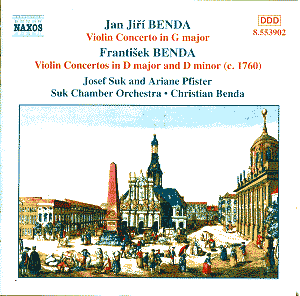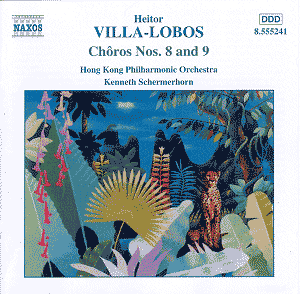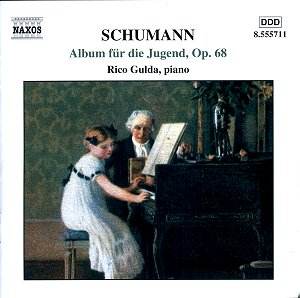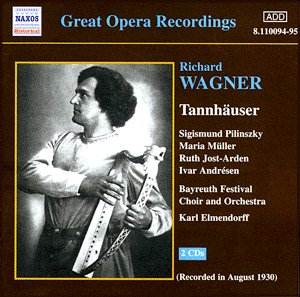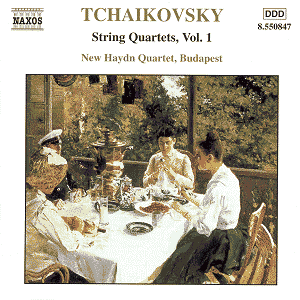 Composer: Pyotr Il’yich TCHAIKOVSKY (1840-1893)
Composer: Pyotr Il’yich TCHAIKOVSKY (1840-1893)
Works: String Quartets Volume 1: No. 1 in D Major Op. 11; No. 2 in F Major Op. 22
Performers: New Haydn Quartet, Budapest
Recorded: Unitarian Church, Budapest from 2 to 5 October 1995
Label: NAXOS 8.550847 (66.35)
In the labyrinthine world of chamber music, the string quartets of Tchaikovsky stand as both bastions of Romantic fervor and complex narratives of emotional depth. The New Haydn Quartet from Budapest presents a commendable effort in their recording of Tchaikovsky’s first two quartets, yet the endeavor reveals the challenges inherent in bringing this repertoire to life with full conviction.
Tchaikovsky’s String Quartet No. 1 in D Major, Op. 11, is a work steeped in nationalistic qualities tempered by a classical framework. The opening movement, “Moderato e semplice,” often falls victim to sluggish tempos, which can diminish its inherent momentum. The New Haydn Quartet strikes a balance; they adopt a tempo that avoids excessive drag, maintaining a forward momentum that allows the thematic material to unfold with clarity. Their choice of articulation, particularly in the lyrical sections, provides a sense of buoyancy that is commendable, though at times, the overall structure feels slightly disjointed, a reflection of Tchaikovsky’s own compositional inconsistencies.
The Andante cantabile, renowned for its poignant expressiveness, benefits from the quartet’s warm tonal quality, though it lacks the visceral depth that one might find in the interpretations by the Borodin Quartet. Here, the emotional contours of Tchaikovsky’s music are lovingly traced, yet the performance sometimes feels restrained, as if the players are hesitant to delve fully into the emotional heart of the music. The Scherzo, with its vigorous character, comes across as somewhat heavy-footed, missing the sprightliness that can make this movement truly shine.
In contrast, Tchaikovsky’s String Quartet No. 2 in F Major, Op. 22, often overlooked in the discography, offers a more nuanced and formally complex structure. The New Haydn Quartet approaches the work with a commendable sense of commitment, particularly in the way they navigate the delicate Mozartian allusions embedded within the score. While they may not achieve the same level of tonal allure as the Borodin Quartet, their interpretative choices reflect an understanding of the work’s intricate layers, particularly in the second movement, where the interplay of voices creates a rich tapestry of sound.
The recording itself, while pleasant, suffers somewhat from the acoustics of the Unitarian Church, which lends a spatial quality that may not fully serve the music’s intimate character. The first violinist, Janos Horvath, tends to dominate the soundscape, which may lead to an imbalance in the quartet’s overall texture. This prominence, though effective in certain passages, can detract from the collaborative spirit essential to quartet playing.
Historically, Tchaikovsky’s quartets occupy a unique position within the Russian chamber music canon, bridging the gap between the classical traditions of Mozart and the burgeoning Russian nationalistic style. Their significance lies not only in their melodic richness but also in their ability to convey deep emotional narratives—a challenge that the New Haydn Quartet embraces, albeit with varying degrees of success.
In comparison to the illustrious recordings by the Borodin Quartet, which combine technical mastery with profound interpretative insight, the New Haydn Quartet’s rendition, while earnest, ultimately falls short of the high bar set by their predecessors. The Borodin’s ability to fuse expressive nuance with an unparalleled command of dynamics renders their performances indispensable in this repertoire.
In conclusion, NAXOS provides listeners with a reasonable and plausible alternative through this recording. The New Haydn Quartet, Budapest, offers an engaging but imperfect exploration of Tchaikovsky’s string quartets, marking a commendable entry into a crowded field. While their interpretations may not eclipse the venerable Borodin Quartet, they nonetheless present a thoughtful and sincere interpretation worthy of consideration. This release is particularly notable for those seeking a fresh perspective on Tchaikovsky’s chamber works, even if it does not fully capture the emotional profundity that characterizes the composer’s finest achievements.
